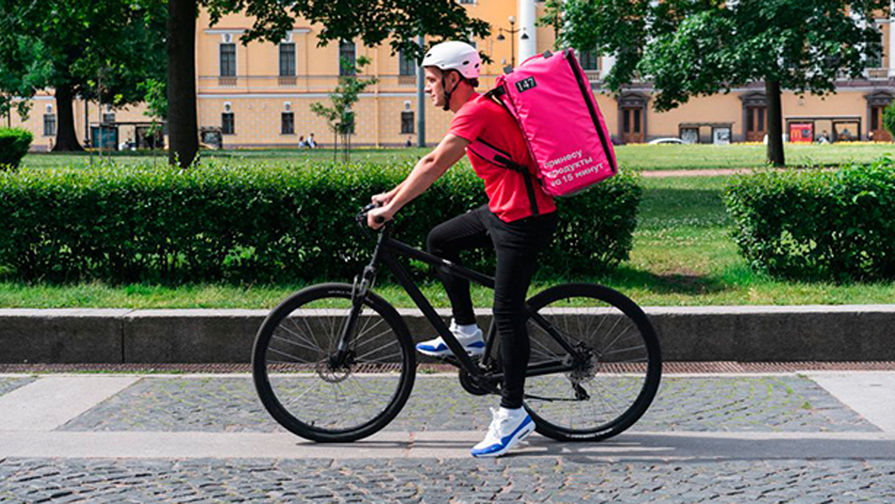Yandex may lose the Open Kitchen brand. The event organizing company M9 Studio refused to hand it over to the Intellectual Property Rights Court, RB.RU learned. Experts believe that the parties face complex procedures.
Author:
https://rb.ru/author/strukova/
Subscribe to RB.RU on Telegram
The Blagoveshchensk company M9 Studio LLC decided not to transfer the Open Kitchen brand to Yandex, RB.RU reported. Yandex appealed to the Court of Intellectual Property Rights with a demand for early termination of the legal protection of this trademark in classes 35 and 41 of the International Classification of Laws due to its alleged lack of use. Court materials indicate that the CEO of M9 Studio objected to the claim. The company’s website features branding and offers event planning services.
- ICGS class 35: product demonstration, organization of exhibitions for commercial or advertising purposes, organization of trade fairs for commercial or advertising purposes.
- ICGS Class 41: organization of exhibitions, conferences, master classes, forums, show programs and other events.
The court set the hearing for October 24.
- According to the Unified State Register of Legal Entities, M9 Studio is headed by Evgenia Rutskova, who is also the founder and sole participant of the company. Rutskova did not respond to RB.RU’s request.
In 2023, Yandex Food began publishing the Open Kitchen magazine about the food and restaurant phenomenon, but it turned out that such a brand was not assigned to the company in Rospatent for a number of services. The trademark “Open Kitchen”, including the spelling “OK!”, was registered by M9 Studio LLC (Blagoveshchensk) in 2019, registration is valid until 2028. Yandex began negotiations with the owner of the sign, but after two months no was able to discuss all the details and filed a lawsuit, the Yandex Food press service reported to RB.RU in June.
“M9 Studio has not used the Open Kitchen brand for several years, so we began negotiations with the company regarding ownership conditions. This is normal practice: according to the law, if the owner does not use the trademark for three years, its legal protection can be canceled. Two months are given for negotiations, but during this time not all details were discussed. To complete the process on time, the interested party in the trademark can file a claim. “This is just a legal formality to continue negotiations,” they said in the Yandex Food press service.
The company did not specify how it would divest the brand if it wins the lawsuit. It is unknown if it will be just a magazine or if Yandex has other plans to develop the brand.
According Alexandra Pelikh, Head of the Litigation and Claims Department at Online PatentIn this dispute, Yandex will have to prove that it actually provides services in ICLG classes 35 and 41. In turn, M9 Studio must confirm the actual use of the Open Kitchen brand for these services, and not just its registration.
From the record of court cases it follows that the copyright holder has already submitted a response, now everything will depend on how the court evaluates the evidence presented by both parties, says Pelikh.
“Yandex already uses a designation that is confusingly similar to a registered trademark. If “M9 Studio” manages to defend its trademark in the Intellectual Rights Court, then the risks associated with the use of this trademark in relation to homogeneous services may be quite high,” the expert considers.
Founder of the Isibrand Patent Office, Patent Attorney No. 2104 Olga Bondareva It says that the possibility of early cancellation of a trademark when the owner does not use it is enshrined in article 1486 of the Civil Code of the Russian Federation. Its appearance is associated with the fight against abuse of the law – “patent trolling”, when the applicant registers hundreds of names and files lawsuits against bona fide entrepreneurs who did not take care of registering the trademark on time. If the parties do not agree on the transaction price for the sale of rights to a trademark or the copyright holder does not want to part with it at all, then the interested party can file a claim with the Court of Rights of Intellectual Property.
It is the owner of the trademark who must actively prove its use, and the plaintiff is exempt from such obligation.
“M9 Studio” will have a hard time. As proof of the use of a trademark, the court accepts: the putting into circulation of goods or the provision of services under a controversial trademark, that is, supply contracts or service contracts are needed. We need advertising campaigns in which this brand is present, agreements with advertisers. We need documented participation in events and exhibitions, licensing agreements with partners who put goods into circulation or provide services under the licensor’s brand,” Bondareva said.
If none of this has happened in the last 3 years, the court is more likely to allow early termination of the trademark’s legal protection. In this sense, it seems more appropriate to conclude an alienation agreement for the disputing parties, since if the court decides positively, the owner of the trademark will no longer be able to sell the rights to it and, in addition, will incur legal costs. .
According to Bondareva, the practice of early termination is becoming common, as fewer names are available every year. According to Rospatent statistics, about 100,000 new applications are filed every year and almost all words are already registered as trademarks, says the expert. Bondareva adds that the number of trademark disputes in Russia will inevitably increase. In 2023, more than 100 lawsuits of this type were filed.
Author:
Ekaterina Strukova
Source: RB
I am a professional journalist and content creator with extensive experience writing for news websites. I currently work as an author at Gadget Onus, where I specialize in covering hot news topics. My written pieces have been published on some of the biggest media outlets around the world, including The Guardian and BBC News.












